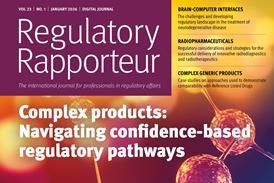Probiotics as nutraceuticals: Bridging science, health and regulation

Abstract
Probiotics, once niche dietary supplements, have become key players in the nutraceutical sector and are being backed by growing evidence of their health benefits. However, their global uptake is challenged by fragmented regulatory frameworks, making classification, approval and marketing complex.
This article reviews probiotic regulations across six major regions: the US, the EU, Canada, Brazil, Malaysia and Japan, and highlights inconsistencies in health claim approvals, strain validation, colony forming unit (CFU) quantification and safety protocols. These disparities create significant hurdles for manufacturers and limit consumer confidence. Moving forward, global harmonisation of standards will be essential. Aligning scientific validation with regulatory expectations will help establish probiotics as reliable and accessible tools in preventive and personalised healthcare.
How to read this journal article
Thank you for visiting Regulatory Rapporteur. Journal articles are restricted to TOPRA members and registered users.
If you are a TOPRA member, or have already registered for limited free access, log in now (Option 1 below).
Not yet a member? You can either join TOPRA (Option 2 below) or register to view limited content for free (Option 3 below).



















